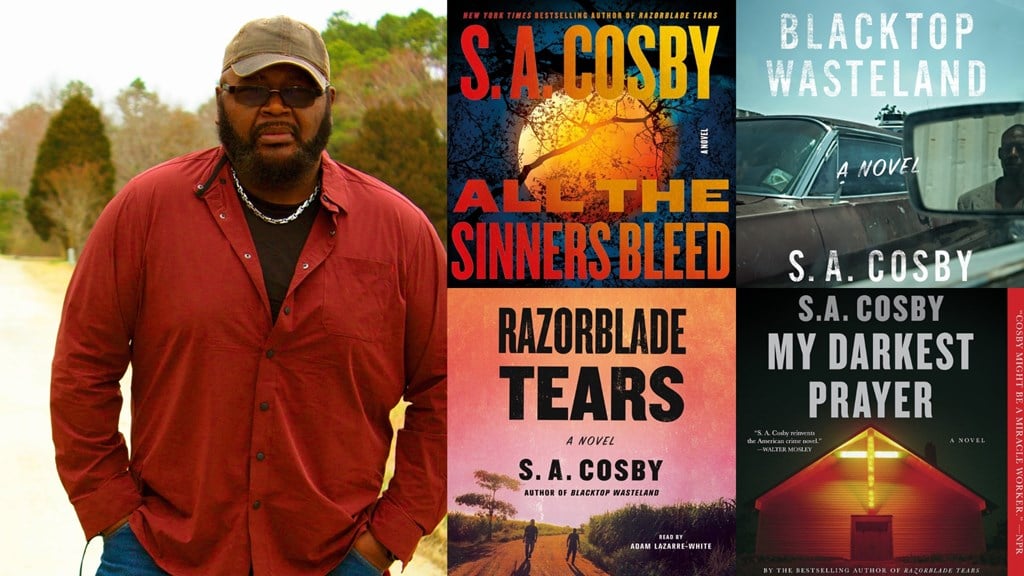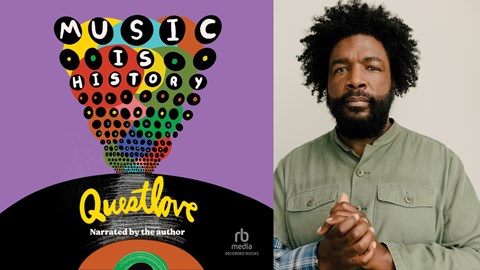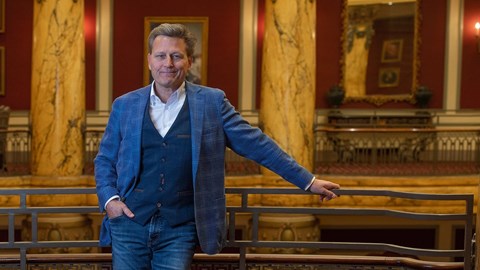S.A. Cosby is the author of RAZORBLADE TEARS, BLACKTOP WASTELAND, MY DARKEST PRAYER, and his latest Earphones Award winner, ALL THE SINNERS BLEED, as well as the recently released children’s audiobook THE RHYTHM OF TIME, which Cosby cowrote with Questlove. In our recent interview with the author, Cosby shared the challenges of creating his newest protagonist in ALL THE SINNERS BLEED and his love of audiobooks.
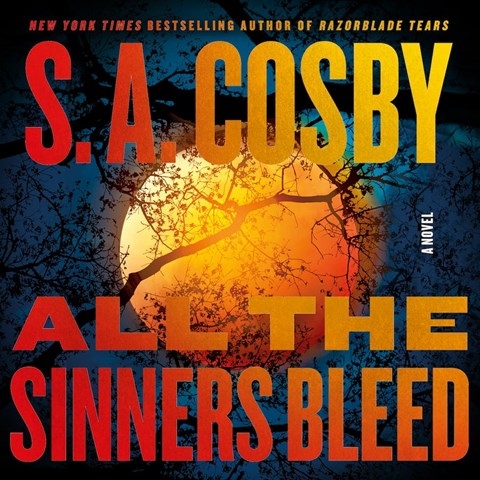 AudioFile: Let’s talk about the first Black sheriff in Charon County, Virginia, Titus Crowne. What challenges did he present to you?
AudioFile: Let’s talk about the first Black sheriff in Charon County, Virginia, Titus Crowne. What challenges did he present to you?
S.A. Cosby: Most of the characters I have written have been criminals who don’t pay attention to the rules. With a sheriff, it's much more difficult; you have to create a compelling character, but somebody who follows the rules. I wanted Titus to be naïve in a way. He really believes the apparatus of the law can be applied equally. And he learns that that's not always the case. I'm a big comic book fan. One of my favorite characters is Batman. I'm not such a big Superman fan. Superman is perfect, and perfect people are kind of boring. Batman, on the other hand, has a lot of moral complexity. I wanted to give Titus some of that. But it was constraining because he must use his brain way more than my other characters do. Titus had to do mental gymnastics.
AF: So, do you have to be smarter than Titus? You always must be a couple steps ahead of him.
SAC: No, Titus is way smarter than me. I wanted to have clues that only he can piece together. He’s the one who can see the pattern. The way he pieces things together, the way he sees the world, was fun to work a narrative around. I didn't want the clues to be so easy that it was obvious. But, at the same time, I wanted the reveal to show his intellectual capabilities again, in addition to his intuition. It was fun creating these puzzles for him.
AF: At the end Titus is involved in a violent scene that literally changes his voice. Did you give the narrator, Adam Lazarre-White, a heads-up?
SAC: No, poor Adam—he didn’t get any heads-up on it—which is funny because I intended this book to be a stand-alone, but a lot of people are saying: “We’d love to see Titus come back.” And now I feel bad because I don't know if Adam is going be able to do that voice for another whole book.
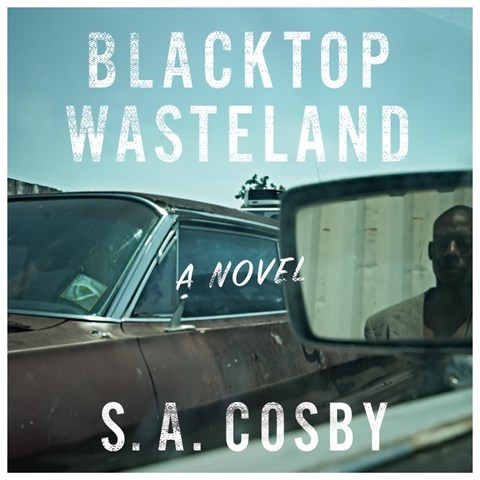
AF: Are you involved in the production of your audiobooks?
SAC: I do have some involvement. I’m sent audition tapes of the narrators. I will say that the moment I heard Adam’s audition tape for BLACKTOP WASTELAND, I knew he had to record that one because of the voices he came up with, especially the way the voice he did for Bugg was the way I heard him in my head. And then, he did such a great job with BLACKTOP, I asked if he would be interested in doing RAZORBLADE TEARS. The voices he came up with for Ike and Buddy Lee were incredible. He’s such a talented performer who creates distinctions even with Southern voices. It would be easy to muddle them, but he does an incredible job of making it obvious who’s talking. He does a great job of making Titus so distinct a character.
AF: Do you listen to your own audiobooks? If yes, what do you learn by listening to them?
SAC: Oh, yeah! I love listening to them. On a long ride to North Carolina, I recently listened to RAZORBLADE TEARS. I got to the end, and it moved me. It creates another dynamic. For instance, one of the villains in BLACKTOP is very creepy, but I didn’t realize how creepy he was until I heard Adam’s performance. The biggest thing is as a writer, you doubt your storytelling abilities. When I listen to the audios, I can hear the way the story structure keeps you on the edge of your seat. So listening to my audiobooks, hopefully, makes me a better writer.
AF: Anything you would like to add about ALL THE SINNERS BLEED?
SAC: It’s a Southern Gothic murder mystery with all that entails—class issues, race issues, religion, and sex, maybe not in that order. I hope it’s a part of that long storytelling tradition in the South and that people enjoy it.
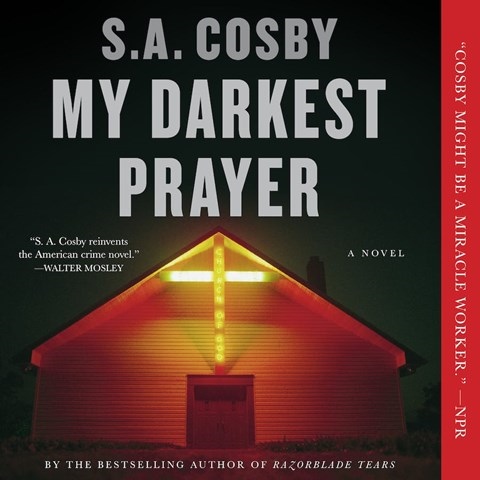
AF: Can you further elaborate on what differentiates Southern Noir?
SAC: Southern Noir is basically crime fiction that is both existential in spirit, in humanity, but also existential in nature. Death is very close at hand. With Southern Noir there is a sense that the world around you is very actively trying to kill you, to grind you down, and take away the things that make you happy. You have to actively fight back in a very physical way. And I think in rural noir the veil between the natural world and civilized world is much thinner.
AF: There's a lot of violence in ALL THE SINNERS BLEED, including violence against children. You've previously stated that “the violence will always be earned.” Can you explain that?
SAC: For me, there’s gratuitous, horrible violence where the writer is just trying to see how gross they can be. I never want to do that. But at the same time, the natural world is a violent place. I grew up in a very rural area. There is a clarity that comes with violence. When you are on a farm you see animals slaughtered, or you see a hawk come down out of the sky and grab a squirrel. There is a brutal, but incredibly crystalline clarity to violence; you know, you either live or you die, either survive, or you don't. There's a beautiful symmetry to that clarity. When I write, I use the violence to create that clarity. I want you to see what the stakes are. And the stakes are life and death. And for me there's no greater existential idea to write about than that. I try to never, ever make the violence cartoonish, or secondary, or just gratuitous.
AF: You recently co-authored a time-travel adventure for young listeners, THE RHYTHM OF TIME, with Questlove. What shifts did you have to make to collaborate?
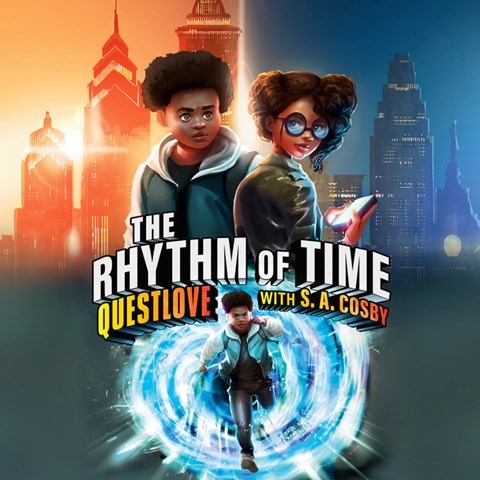 SAC: Usually, I write pretty fast. I know where I want the story to go and I wrestle with it till it goes there. Questlove is such a brilliantly creative person. Working around his busy schedule, I had to slow my process down. My third-grade teacher would be very proud, because I learned to be more judicious with my time, more focused when writing. All of these experiences are making me a better writer. And demonstrating that I can be versatile as a writer.
SAC: Usually, I write pretty fast. I know where I want the story to go and I wrestle with it till it goes there. Questlove is such a brilliantly creative person. Working around his busy schedule, I had to slow my process down. My third-grade teacher would be very proud, because I learned to be more judicious with my time, more focused when writing. All of these experiences are making me a better writer. And demonstrating that I can be versatile as a writer.
We are planning a sequel to THE RHYTHM OF TIME.
AF: I understand that a couple of your books have been optioned for movies, including RAZORBLADE TEARS. What is it like as an author to see your characters on the written page, then to hear them in audiobooks, and now to see them come to life on the screen?
SAC: It’s insane. I'm very lucky, because the people that I'm working with for the different books are all incredible professionals. These books are like my babies. Like, you hope somebody understands what you're trying to say, that they get what you're trying to do. I've been very lucky, because all the folks who are in the process of adapting the books really get it. They really understand it. I have a lot of confidence in the folks who are adapting my work. They take the books very seriously.
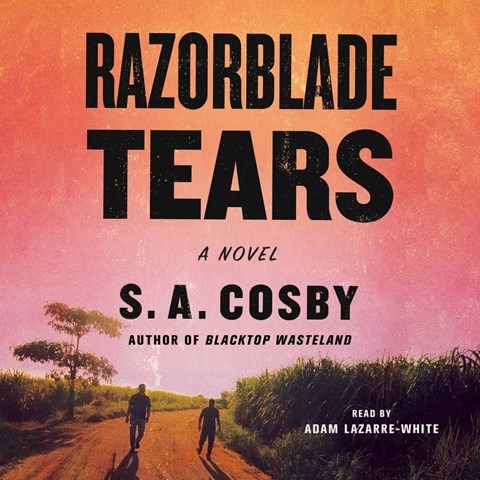 I want to be in a movie theater so that I can see how people react. I want to see what people say in real time. I don't want anybody to know I’m there. I want to be in the background, and if they like it, I’ll be, “Okay, y’all, I’ll keep doing more of that.”
I want to be in a movie theater so that I can see how people react. I want to see what people say in real time. I don't want anybody to know I’m there. I want to be in the background, and if they like it, I’ll be, “Okay, y’all, I’ll keep doing more of that.”
I think, as a writer, you can’t say how amazing that experience is. Somebody has seen your work, and they find it interesting enough that they want to do something with it and bring it to a different medium. That's amazing.
AF: Just one last question: Have you considered narrating your own audiobooks?
SAC: I get asked this question a lot. I have done a little bit here and there. As you can see from this interview, I don’t mind talking. I just feel like there are people who do it way better than I do. Maybe if I do a short story collection, maybe I’d do that.
Photo by Sam Sauter Photography


